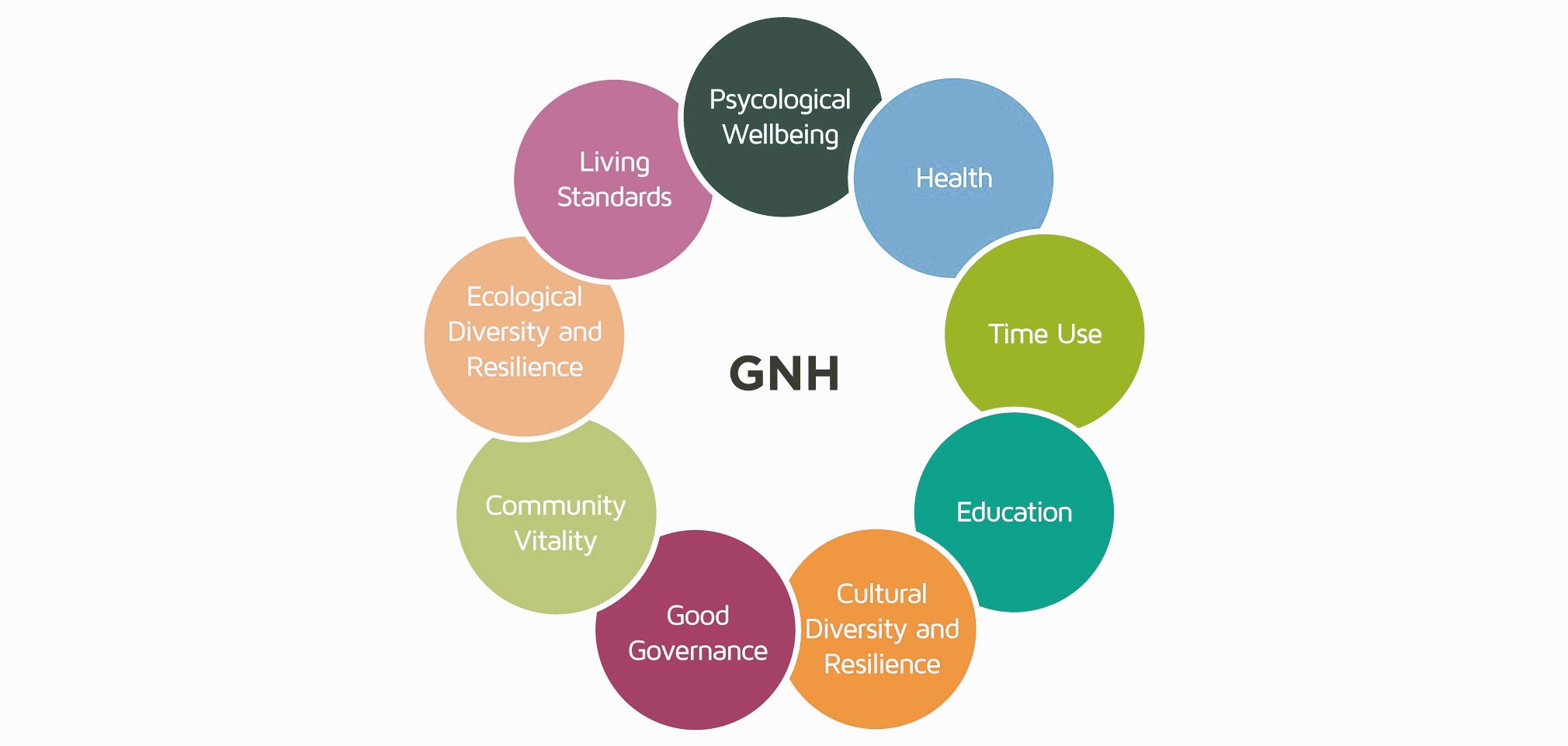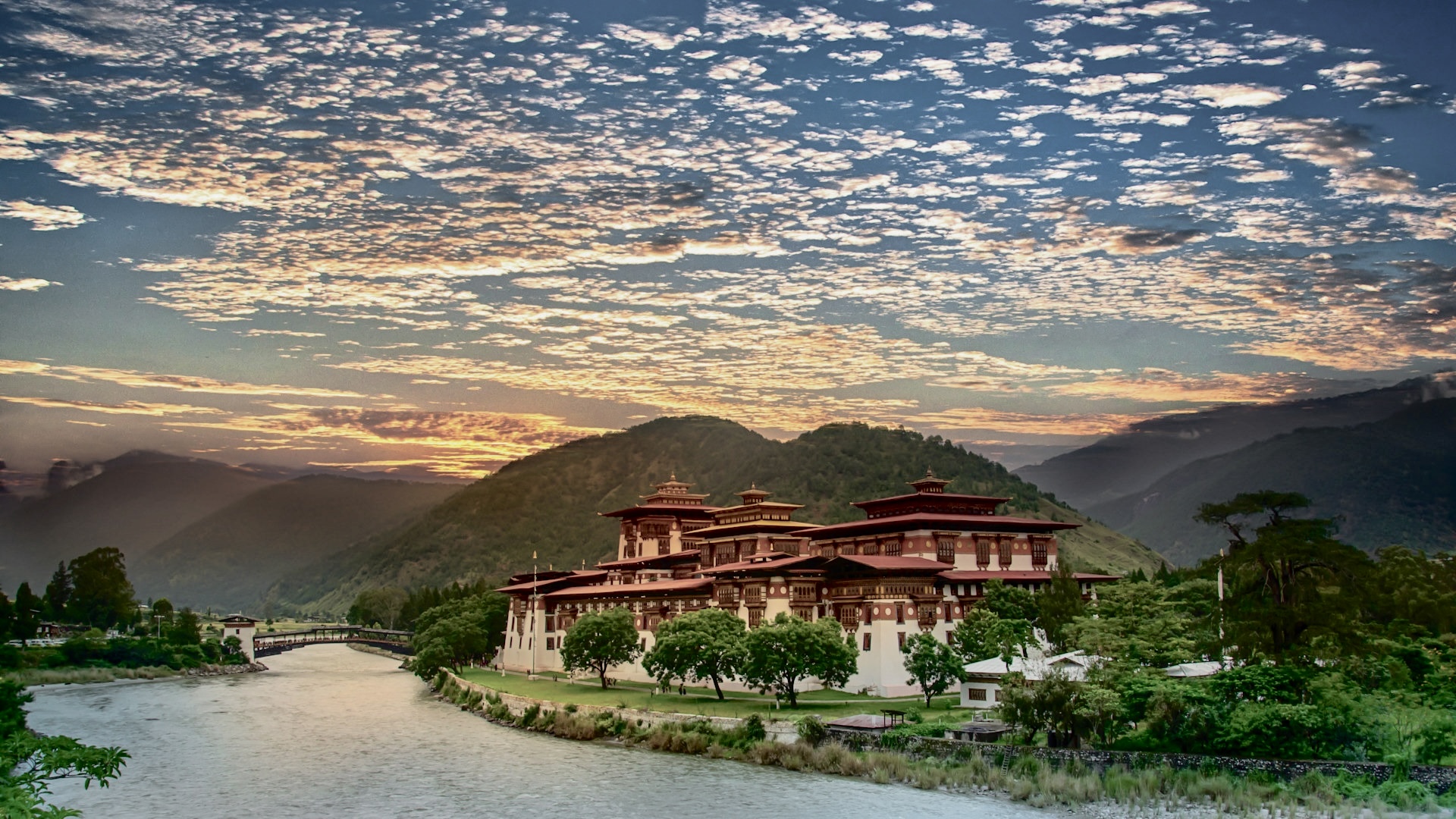
Gross National Happiness (GNH) is a unique development philosophy associated with Bhutan. Introduced in the 1970s by the Fourth King, Jigme Singye Wangchuck, GNH emphasizes the overall happiness and well-being of people rather than focusing solely on economic growth.
Origin of Gross National Happiness
The concept of GNH was coined to ensure that modernization and development do not come at the cost of cultural values, environmental sustainability, and spiritual well-being. It reflects Bhutan’s belief that true progress must be balanced and inclusive.
The nine domains of GNH
Bhutan evaluates the happiness and well-being of its citizens through nine interconnected domains.

1. Psychological well-being
This domain includes mental health, emotional balance, spirituality, and overall life satisfaction.
2. Health
Focuses on physical and mental well-being, along with access to quality healthcare services.
3. Education
Covers formal education as well as informal learning, cultural knowledge, and moral values.
4. Time use
Assesses how individuals balance work, leisure, family, and rest in their daily lives.
5. Cultural diversity and resilience
Emphasizes the preservation and promotion of Bhutanese culture, traditions, and identity.
6. Good governance
Measures trust in institutions, fairness, transparency, and the effectiveness of governance.
7. Community vitality
Evaluates the strength of family ties, community relationships, and social support systems.
8. Ecological diversity and resilience
Highlights environmental conservation, sustainable resource use, and ecological protection.
9. Living standards
Considers income, housing, and material conditions while maintaining balance with non-material values.
GNH in policy and practice
Bhutan uses national surveys and indicators based on these domains to guide government policies and development planning. The framework helps ensure that progress benefits society as a whole.
Balancing happiness and development
While Bhutan prioritizes Gross National Happiness, it does not ignore economic development. Instead, the goal is to balance economic growth with social harmony, cultural preservation, and environmental sustainability.


